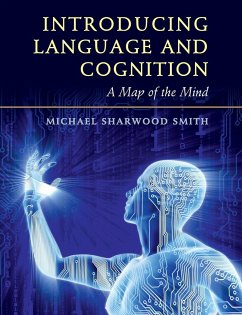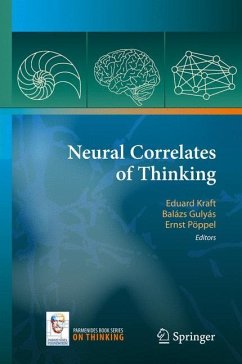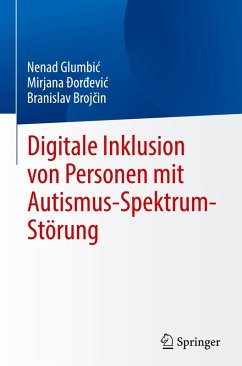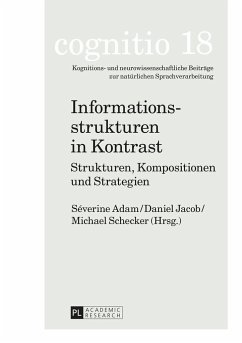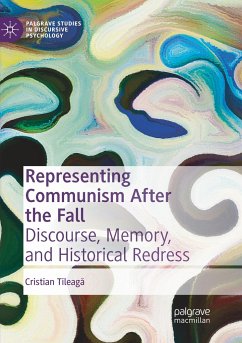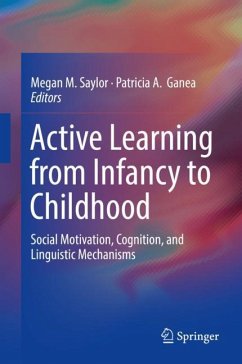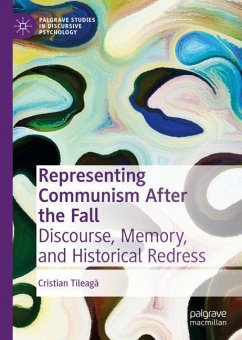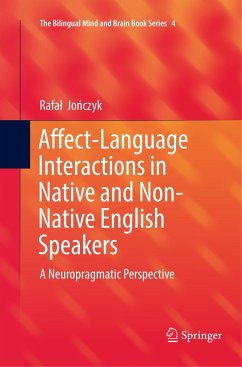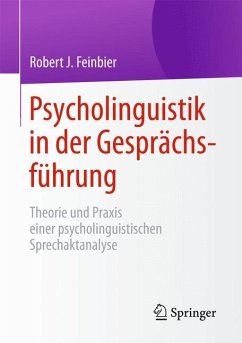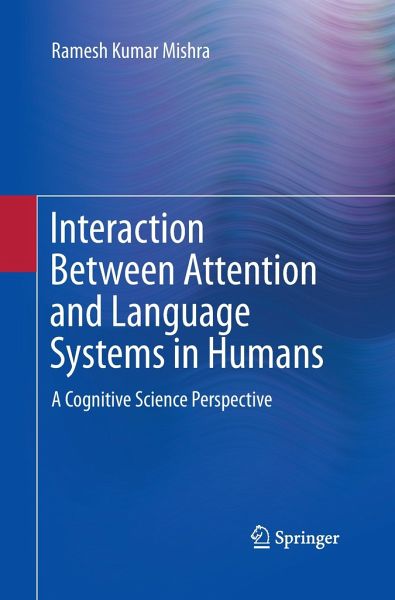
Interaction Between Attention and Language Systems in Humans
A Cognitive Science Perspective
Versandkostenfrei!
Versandfertig in 6-10 Tagen
38,99 €
inkl. MwSt.
Weitere Ausgaben:

PAYBACK Punkte
19 °P sammeln!
This original volume examines the interface between attentional and linguistic processes in humans from the perspectives of psycholinguistics and cognitive science. It systematically explores how autonomy and automaticity are reflected during language processing in a variety of situations. A true, mechanistic explanation of how humans process language would require a complete understanding of the interface language has with important cognitive systems like attention, memory, as well as with vision. Interdisciplinary work in this area has so far not been able to generate a substantial theoretic...
This original volume examines the interface between attentional and linguistic processes in humans from the perspectives of psycholinguistics and cognitive science. It systematically explores how autonomy and automaticity are reflected during language processing in a variety of situations. A true, mechanistic explanation of how humans process language would require a complete understanding of the interface language has with important cognitive systems like attention, memory, as well as with vision. Interdisciplinary work in this area has so far not been able to generate a substantial theoretical position on this issue.
This volume therefore looks at different language processing domains, such as speaking, listening, reading, as well as discourse and text processing, to evaluate the role attention plays in such performances; and also at how often linguistic inputs affect attentional processing. In this sense, it proposes that the attention--language interface is bidirectional.It also considers applied issues like language disorders, bilingualism and illiteracy, where the attention--language interface seems especially relevant as a theoretical apparatus for research investigations. Therefore, this volume brings closer theoretical explanations from the language sciences and cognitive sciences. It argues that language processing is multi-modal in its very essence and many conceptual structures in language evolve out of a complex interplay among participating cognitive systems such as attention and memory, supported by vision and audition.
This volume therefore looks at different language processing domains, such as speaking, listening, reading, as well as discourse and text processing, to evaluate the role attention plays in such performances; and also at how often linguistic inputs affect attentional processing. In this sense, it proposes that the attention--language interface is bidirectional.It also considers applied issues like language disorders, bilingualism and illiteracy, where the attention--language interface seems especially relevant as a theoretical apparatus for research investigations. Therefore, this volume brings closer theoretical explanations from the language sciences and cognitive sciences. It argues that language processing is multi-modal in its very essence and many conceptual structures in language evolve out of a complex interplay among participating cognitive systems such as attention and memory, supported by vision and audition.



